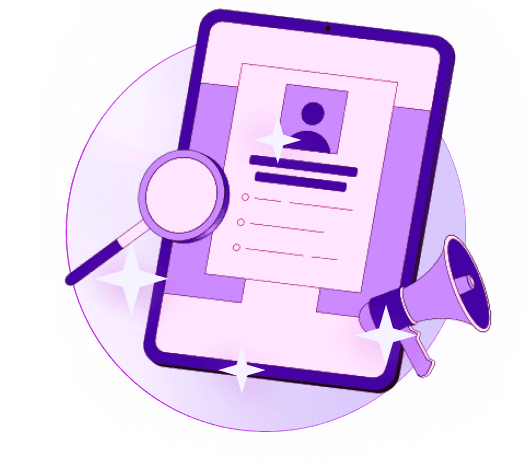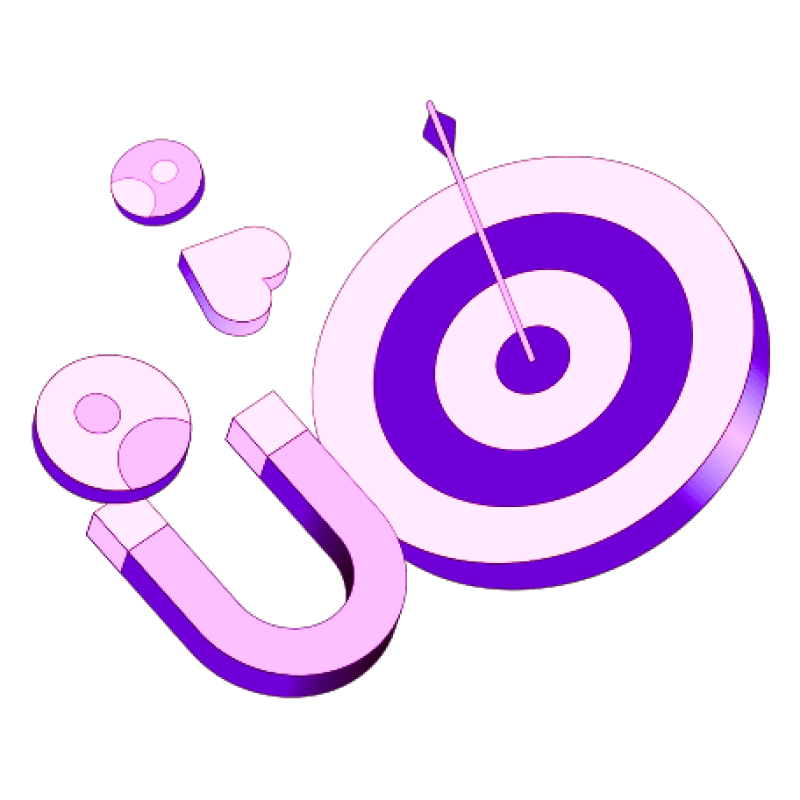Blogs
Articles


How to Start Using AI in Marketing and Sales: A Step-by-Step Guide
AI in marketing and sales is growing faster than ever, and many professionals now say they "couldn't live without AI" in their daily workflows.
AI helps salespeople everywhere exceed their quotas in two most important ways. The technology analyzes both structured data (like purchase histories) and unstructured information (such as social media posts) to learn about consumer priorities.
Beginners looking to control this potential will find value in this step-by-step piece. We'll walk you through everything you need to know about essential AI tools and responsible implementation strategies to use AI effectively in your marketing and sales efforts. Let's take a closer look!
How is AI used in sales and marketing?
AI is reshaping the scene in marketing and sales by redefining core operations. Companies investing in AI see revenue increases of 13-15% and their sales ROI improves by 10-20%. Most commercial leaders (90%) plan to use generative AI solutions "often" in the next two years.
AI's main role in sales involves handling cognitive work that humans find too data-heavy to process quickly. It analyzes vast amounts of information within seconds and finds meaningful patterns in customer behavior to spot high-potential prospects.
AI makes a vital contribution to lead management. Sales teams can identify and score potential leads better as AI analyzes large datasets to quickly spot patterns of ideal customers. AI-powered tools also automate prospecting by researching contacts in CRM systems and running individual-specific outreach strategies.
Sales forecasting is another key area where AI shines. Traditional forecasts often depend on gut instinct or partial data, but AI algorithms analyze buying signals and historical sales numbers with much better accuracy. While only 7% of teams achieve forecast accuracy of 90% or more, AI-enhanced forecasting is altering this map.
What is the future of AI in sales and marketing?
The economic potential of ai in marketing and sales will blow your mind. The global AI in marketing market will reach $47.32 billion by 2025, up from $12.05 billion in 2020—showing a remarkable 36.6% CAGR. AI's role in sales and marketing has become a necessity rather than a choice.
Companies are making decisions faster than ever before. Those who use AI's predictive power see impressive results. Organizations that adopt breakthroughs have seen their cumulative TSR growth climb four percentage points higher than their competitors.
Three emerging technologies will join forces to revolutionize customer engagement. Generative AI will create media, emotion AI will analyze user feelings, and federated learning will optimize processes against company goals. These technologies working together will personalize content at an unprecedented scale—what experts call "scalable influence."
Essential AI Tools for Beginners
AI in marketing and sales doesn't have to feel overwhelming. You should focus on tools that give quick value without needing deep technical knowledge. The numbers tell an interesting story - 72% of companies now use AI tools weekly in 2024, up from 37% in 2023. This makes picking the right tools crucial.
AI tools for content creation and automation
Content creation tools are the foundations of any AI marketing toolkit. Jasper leads the pack as an all-in-one platform with over 50 templates. These templates help create everything from email subject lines to long-form blog posts. The platform works in over 30 languages and starts at $39 monthly. Surfer SEO shines at content optimization with its keyword analysis and user-friendly content editor that boosts search rankings. Grammarly's AI suggests better phrasing to keep your content engaging.
Sales tools powered by AI
AI tools give sales professionals a way to automate repetitive tasks and learn about their prospects. Salesforce Einstein blends machine learning with natural language processing to power CRM features. It automates data entry and explains conversations. Gong listens to and breaks down sales calls. This helps teams close deals faster while optimizing communication. Salesloft creates AI-powered sequences to send tailored outreach based on prospect engagement patterns.
Choosing the right tools for your business
The best AI tools match your business needs perfectly. Start by pinpointing your specific challenge. Look at how well tools connect with your existing systems - the most effective AI sales tools unite all your customer and sales data in one spot. The tool's ease of use and training needs matter too. Recent studies show 57% of companies choose their AI investments more carefully now, looking for lasting results.
The perfect tools don't need to be cutting-edge. They just need to line up with your marketing goals and create lasting success.
Personalization and Predictive Power of AI
Personalization stands out as one of the most powerful applications of ai in marketing and sales. Modern customers expect tailored experiences, and 73% look forward to better personalization as technology advances.
Using AI for customer segmentation
AI has transformed the traditional customer segmentation that once relied on simple demographics. AI-powered segmentation studies massive datasets to spot subtle patterns in customer behavior. These systems can categorize customers based on several characteristics:
Demographics and geographic location
Behaviors and priorities
Lifestyles, values, and interests
Specific needs and pain points
Companies that use AI-powered segmentation report a 20% increase in customer involvement with content. This deeper segmentation helps arrange messages that connect with each customer's true interests.
Creating hyper-personalized campaigns
AI, machine learning, and up-to-the-minute data analysis work together to create highly individualized experiences. This approach has proven its worth—companies that provide personalized experiences can generate 40% more revenue than others.
Starbucks's AI-driven Deep Brew program shows this in action. The program creates personalized marketing at scale and tailors promotions to individual customers. This customization boosts user experience and increases involvement.
Predicting customer behavior with AI
Predictive analytics helps AI excel at anticipating future customer actions. AI studies historical data patterns to forecast future purchases, spot potential churn risks, and identify upselling opportunities.
Marketers can now create personalized campaigns by anticipating consumer behavior instead of just reacting to it. Companies use these analytical insights to make better decisions with less uncertainty.
Real-time campaign optimization
AI-powered analysis has changed how marketers optimize their campaigns. AI strengthens brands to make quick changes based on current performance metrics through instant data processing.
Health Intelligence™ platforms analyze millions of ad opportunities every second. These platforms move budgets from low-performing spots to high-impact ones. Marketing campaigns can now reach the right audience at the perfect moment.
Persana offers specialized AI tools to help businesses implement these advanced personalization strategies. These tools are designed for marketing and sales teams who want to utilize personalization at scale.
Building Skills and Using AI Responsibly
AI implementation in marketing and sales goes beyond buying tools—you just need to develop simple skills and adopt responsible practices. A McKinsey survey found that 78% of large organizations worldwide have adopted AI, and marketing and sales rank among the top implementation areas.
Learning the simple concepts of AI and machine learning
Machine learning serves as the foundation of modern AI applications in marketing. These algorithms imitate human analysis, identify patterns, and make predictions. Quality, relevant data helps these algorithms train and make accurate predictions. Poor or biased data creates flawed outcomes. This knowledge helps marketers choose AI solutions that line up with their goals.
Hands-on practice with AI tools
Theory alone won't cut it—you need practical experience. The best approach is to start with user-friendly AI tools that provide clear documentation and support. Persana.ai offers specialized training programs that build practical AI skills for marketing and sales applications. Companies still find it hard to calculate AI's productivity improvements—59% report this challenge. This makes hands-on practice vital to show real value.
Understanding data privacy and bias
Data privacy and ethical concerns affect 49.5% of businesses using AI. You should check AI tools for potential bias by tracking outcomes across different demographics before deployment. Be open about AI's role in customer experiences—84% of consumers want mandatory AI labeling. Regular audits using TensorFlow Fairness Indicators or IBM's AI Fairness 360 help prevent discrimination.
Balancing automation with human oversight
AI brings great benefits, but humans remain irreplaceable. While AI can handle repetitive tasks efficiently, skilled professionals should oversee strategic decisions. Business leaders agree—75% say AI ethics matter. Think of AI as your team's extension rather than a replacement. Let it handle backend tasks while your team builds relationships and applies creativity.
Conclusion
AI's integration into marketing and sales marks a real transformation, not just another trend. This guide shows how AI tools deliver impressive results. Companies that use these technologies see 13-15% higher revenue and 10-20% better sales ROI.
AI handles tasks that humans find overwhelming. It analyzes huge datasets and finds meaningful patterns in customer behavior. On top of that, it makes lead management smoother, improves sales forecasting, and delivers tailored communication at scale.
Starting your AI trip doesn't need deep technical knowledge. You'll find many user-friendly tools for content creation, sales automation, and customer segmentation. All the same, you need to implement it responsibly. Your AI strategy must consider data privacy, address potential bias, and ensure you retain control.
FAQ
Which AI is best for sales and marketing?
The "best" AI solution depends on your business needs, team size, and objectives. No single tool works perfectly for everyone.
Jasper stands out as a detailed solution that generates marketing copy in over 30 languages. The platform offers more than 50 templates for various content formats. ChatGPT shines with its versatility. You can write emails, social media posts, and blog content with it. The tool also generates marketing surveys and helps with keyword research.
Enterprise-level systems include industry giants like HubSpot, Salesforce Einstein, Adobe Sensei, and IBM Watson Marketing. Einstein Copilot from Salesforce excels at creating personalized emails. The tool generates visual and text-based content that helps with lead generation.


Create Your Free Persana Account Today
Join 5000+ GTM leaders who are using Persana for their outbound needs.
How Persana increases your sales results
One of the most effective ways to ensure sales cycle consistency is by using AI-driven automation. A solution like Persana, and its AI SDR - Nia, helps you streamline significant parts of your sales process, including prospecting, outreach personalization, and follow-up.

